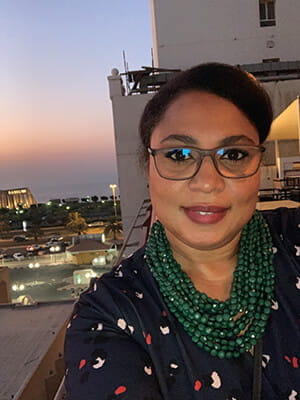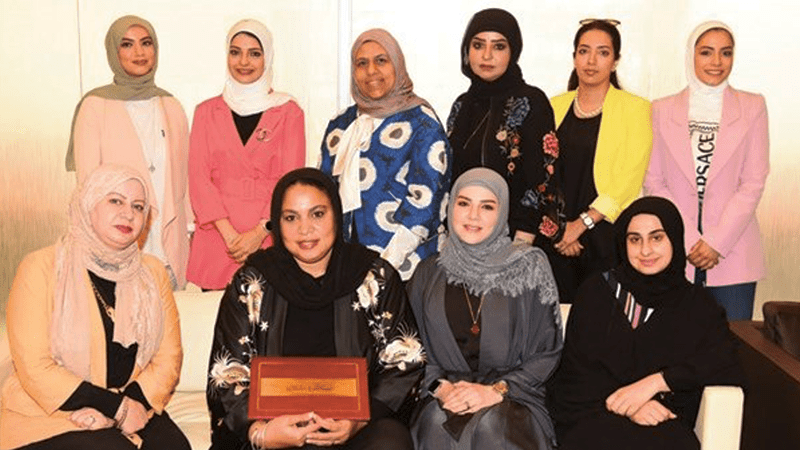
Early in her teaching career, Dr. Ayanna Cooper ’09 taught in a preK classroom where the majority of students spoke a language other than English at home. Some of the languages represented in her class were Spanish, Russian, and Arabic. Despite this, the students were expected to meet and exceed standards designed for native English speakers.
Cooper responded by creating a print-rich and language-based learning environment. As the year progressed, she saw her students’ language skills develop in both their home languages and English. But she wanted to do more.
“I was teaching in classes that had linguistically diverse learners, so it was something I felt I needed to learn more about,” she recalls. “I was really just looking for more ways to support them.”
The experience would become a turning point in Cooper’s career. A colleague at her school and teacher of English language learners encouraged Cooper to pursue an endorsement in teaching English to speakers of other languages (ESOL).
Years later, they would both become Walden alumni.
“I fell back in love with teaching,” Cooper says of earning the endorsement. “And I found out that the rights that protect these students actually grew out of the civil rights movement, which I was really drawn to.”
Completing the ESOL endorsement reignited a passion for scholarship for Cooper. She went on to earn an Education Specialist (EdS) degree in curriculum and instruction, her Doctor of Education (EdD) with a specialization in Teacher Leadership from Walden University, and then a second master’s degree in teaching English to speakers of other languages.
As a full-time teacher, earning her EdD at Walden offered the flexibility Cooper needed. Her dissertation focused on elementary ESOL teacher efficacy and the need for more content-focused professional development.
More than a decade after completing her doctoral degree, Cooper continues to advocate for students. As an independent consultant, she helps school districts and school leaders design and improve professional development programs for teachers of English language learners. Her second book, And Justice for ELs: A Leader’s Guide to Creating and Sustaining Equitable Schools, to be published in September, serves as a field guide from her years supporting school leaders across the U.S.
“I found that the locations may change, but a lot of the concerns and issues were very similar and the needs were similar,” Cooper says. “The school leaders I was supporting would always be so busy, they would have very little time to engage in their own professional learning and reflection.” With her book, she hopes to reach busy educators across the country, extending her impact and creating more equitable opportunities for students.
“Educators don’t wake up in the morning with the intent of violating their students’ civil rights,” Cooper says, “but unfortunately it happens often.” Through her professional development and coaching work with public school districts and school leadership, Cooper is able to affirm the practices that teachers get right and offer additional tools to increase positive outcomes for traditionally marginalized students.
“My work with educators is really fulfilling, because it’s helping them to be better practitioners,” Cooper says.
Cooper never planned to be an entrepreneur. But after facing a lack of full-time job opportunities and seeing the huge need that existed for teachers of English language learners, she took a leap of faith and became an independent contractor. Founding A. Cooper Consulting has allowed her to have an impact on curriculum throughout the U.S.—and around the world.
In fall 2019, she traveled to Kuwait as an English language specialist for the U.S. Department of State, working on high school English language curriculum for the Kuwait Ministry of Education.
During the trip, Cooper made recommendations that have the potential to improve outcomes for all Kuwaiti high school students. Over the course of the monthlong assignment, she had the opportunity to get to know Kuwaiti educators, discovering that many learned English through YouTube and social media.
“It was an opportunity to see how the English language is taught in another country,” Cooper says. “So I was looking for similarities and differences between how English is taught here in the U.S. and in Kuwait.”
Cooper hasn’t stopped sharing her experience and knowledge. She’s currently serving a term on the TESOL International Association board of directors, where she strives to help make the organization as diverse and inclusive as possible.
“I remember thinking that I would have so much free time once I finished my doctorate,” Cooper recalls with a laugh. “But I tell other doctoral candidates that I ended up being just as busy, if not more.”
As a lifelong learner, she says, interesting projects that foster inclusivity continue fueling her passion for advocacy. “For me,” Cooper says, “the learning is never done. It’s never complete.”




